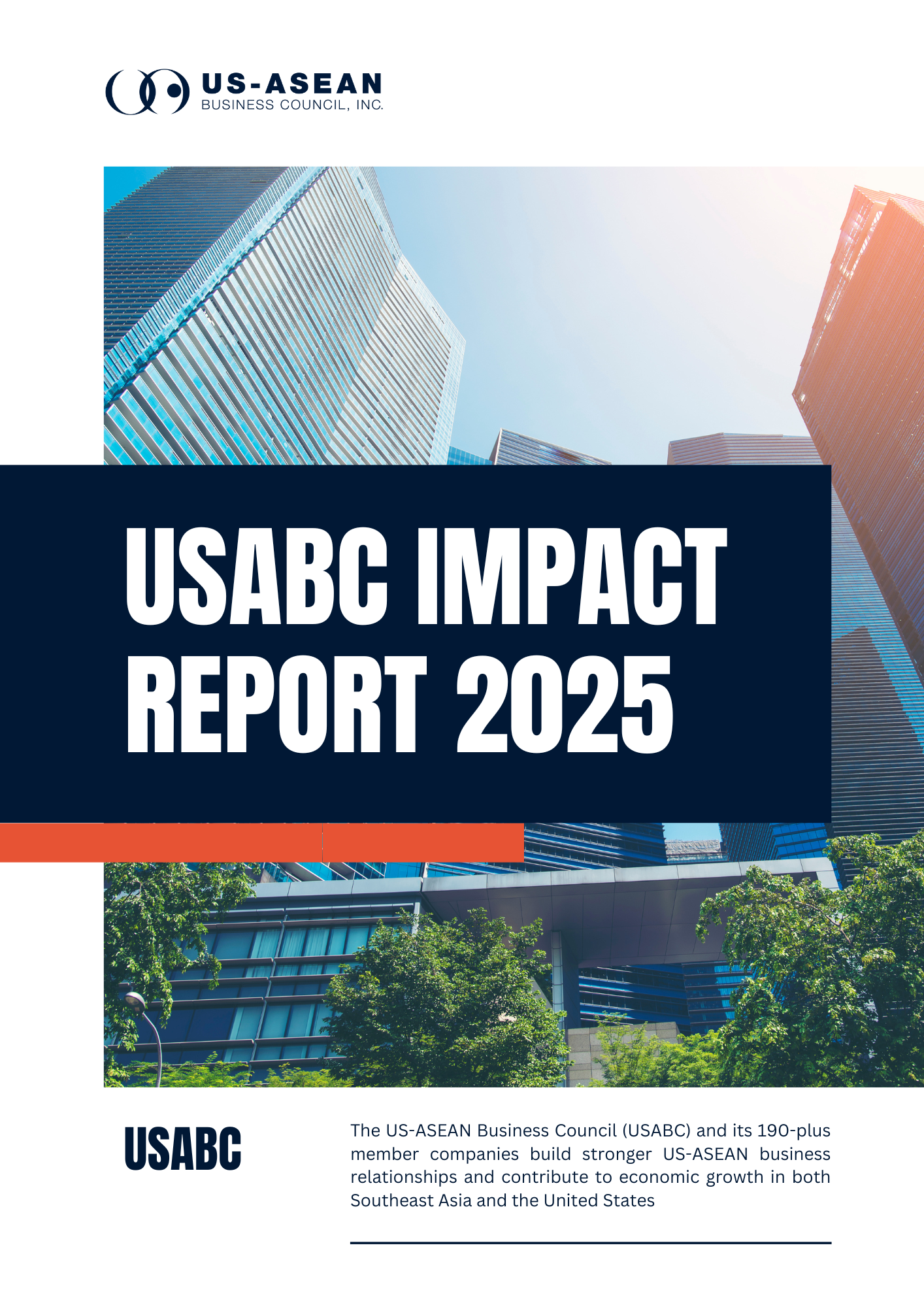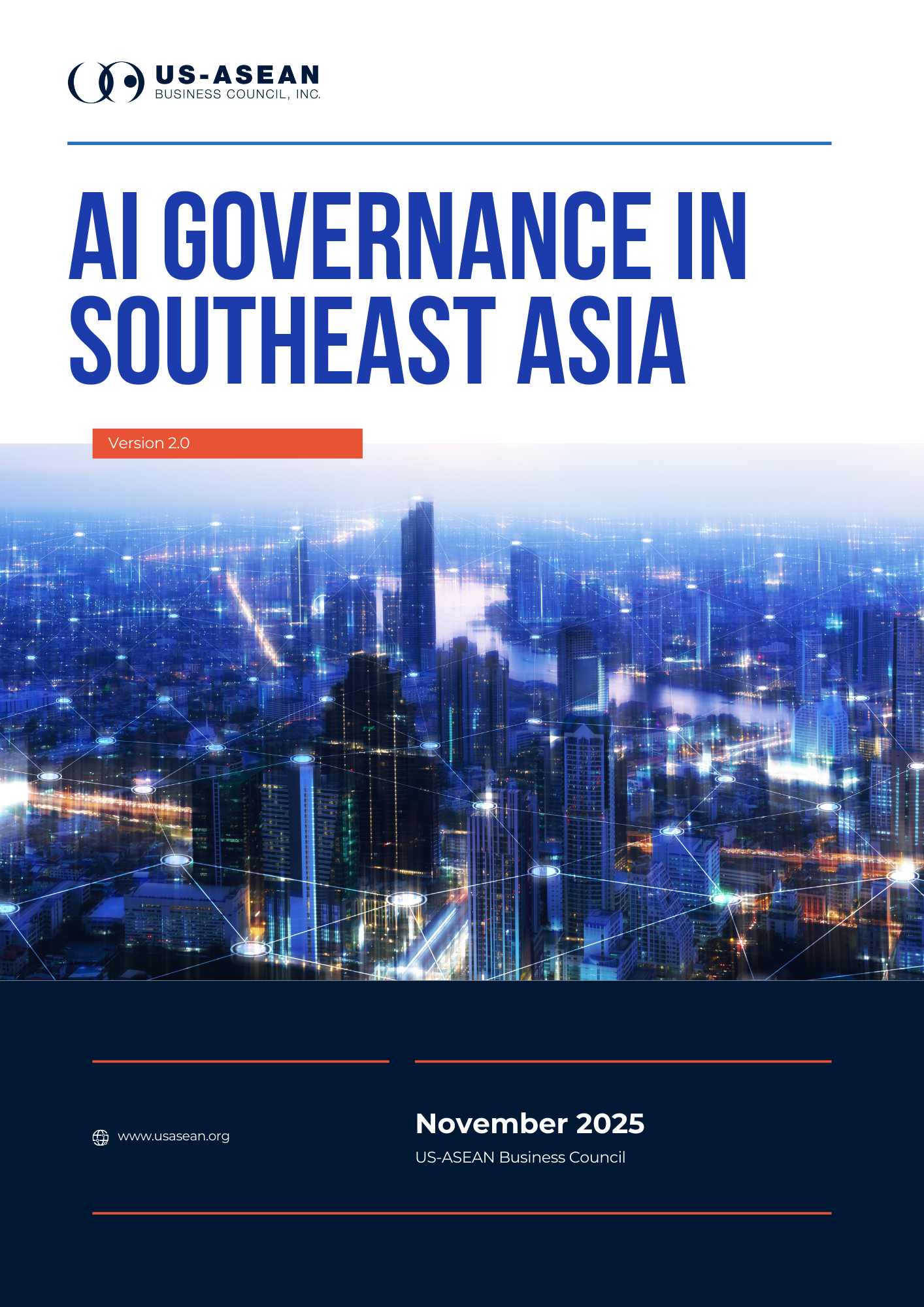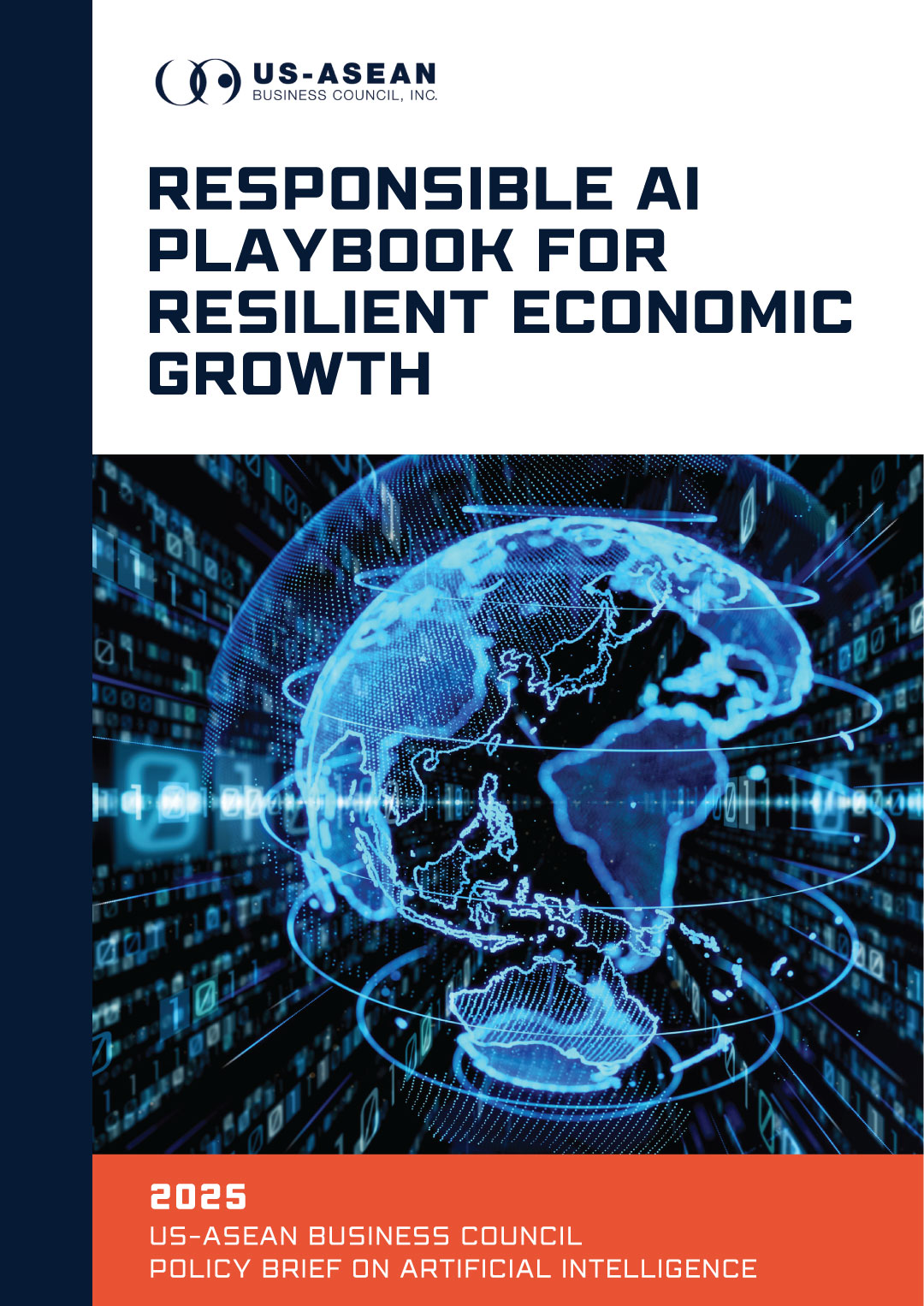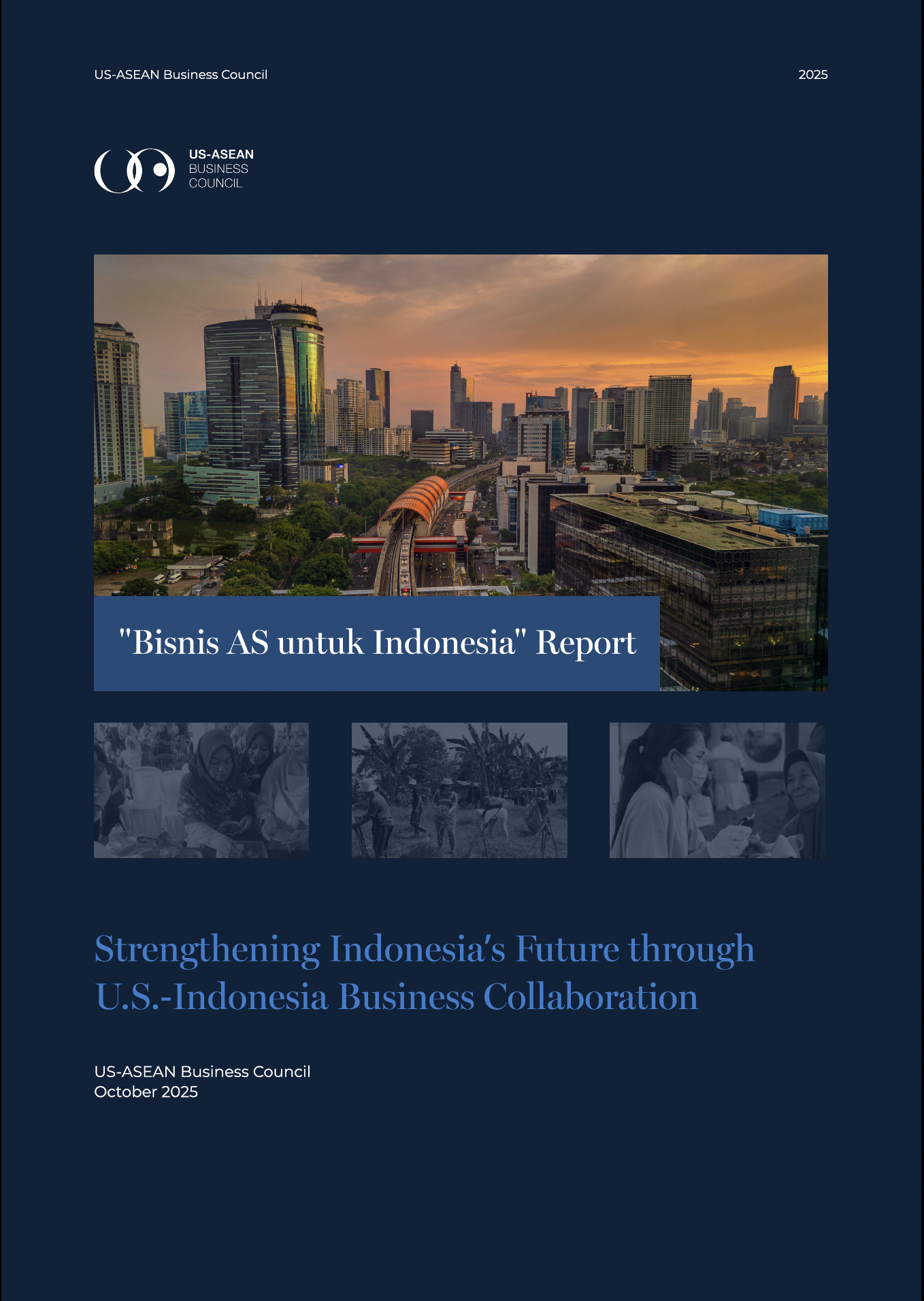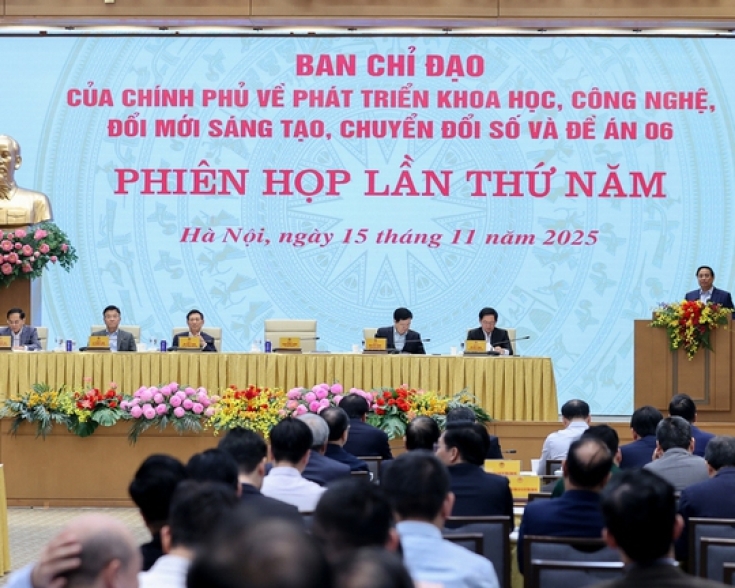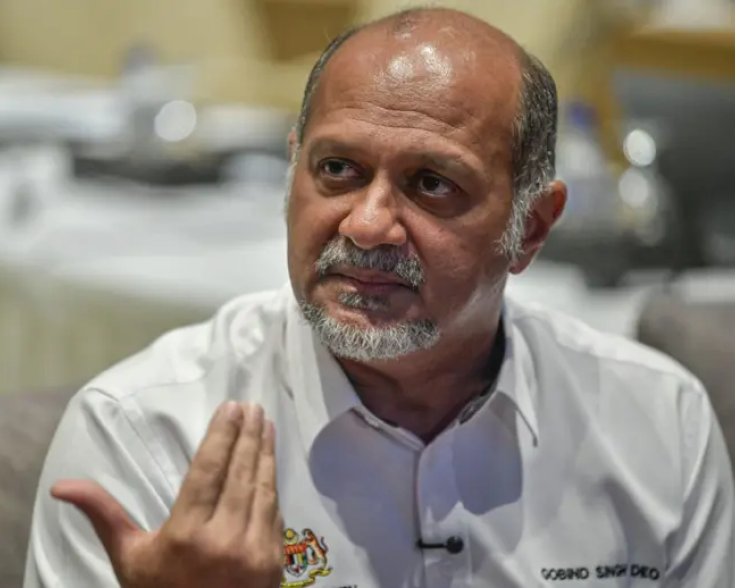Interview with Rep. Young Kim

On June 11, Ambassador Ted Osius (ret.) had the pleasure of sitting down with Representative Young Kim for a discussion on Congress’s role in shaping trade policy, the impact of tariffs on business with Southeast Asia, and new avenues for economic collaboration with the region.
Representative Kim represents the 40th District of California, which includes parts of Orange, San Bernardino, and Riverside counties. She serves on the House Foreign Affairs Committee, where she is Chair of the Subcommittee on East Asia and the Pacific. She also serves on the House Financial Services Committee.
Ambassador Ted Osius
Looking ahead to the next few years, what role will legislation play in deepening trade ties between the United States and ASEAN? What might current and pending legislation, such as the Partner with ASEAN Act, mean for U.S. businesses operating in the region?
Representative Young Kim
I know our partners in the Indo-Pacific and ASEAN want clarity. They want a strong, coherent U.S. economic framework for the region, which is long overdue. That's what we're going to focus on.
My Subcommittee on East Asia and the Pacific recently had a committee hearing to talk about the United States’ role—especially the State Department's role—in establishing stronger economic statecraft. For a long time, our agencies and bureaus have been merged, eliminated, or consolidated into other agencies that focus more on domestic issues.
We believe that we need to have the State Department take a leadership role and work abroad with American businesses in Southeast Asia. The State Department should also collaborate with Southeast Asian nations to help U.S. businesses gain more market access, in addition to working with folks on the ground like yourselves.
Congress has a critical opportunity to deepen our U.S. trade engagements in the region, which is why I’m pushing the passage of the Partner with ASEAN Act. This is the second time the bill has been introduced—this time under a Republican-controlled Congress in both the House and the Senate, with President Trump in the White House. If we can get it through the legislative body, I'm very confident that it will get signed into law.
This legislation will grant ASEAN countries diplomatic privileges and immunities that will further enhance our engagement. It will continue the dialogue that will strengthen our economic relationships, hopefully resulting in a lot more agreements in the long run.
Of course, the goal of the Partner with ASEAN Act is to facilitate a permanent ASEAN mission here in Washington, thereby establishing greater trust and collaboration with our ASEAN partners. That would be a win for the United States and for U.S. businesses.
Ambassador Ted Osius
So, if I may, the Partner with ASEAN Act shows respect to our ASEAN friends, and it helps us build trust that's going to be good for business. Are there any avenues for Congress to assume more authority in the designation and implementation of tariffs, and how do you think that might influence trade policy?
Representative Young Kim
We're watching very closely to see how these negotiations turn out. At the end of the day, it's my constituents’ livelihoods that are also at risk if we did not do this right, and Congress will act if we need to. But we also know that trade deals with our allies are good for our national security in the long term. Economic security is national security.
What I'm working on right now is ensuring that current and future Republican or Democrat administrations notify Congress before they start implementing tariffs on any other countries—especially those that we're already trading with. They should come to us and justify why such tariffs are needed. That’s why I introduced the REPORT Act, which requests transparency, clarity, and accountability. I also want to make sure that Congress brings back its trade and tariff authority.
That's not what happened when President Trump came into office and imposed tariffs on countries across the globe—that really shocked a lot of trading partners. I want to send a strong message to any administration that Congress has the authority to set trade policy.
Ambassador Ted Osius
You have small businesses in your constituency.
Representative Young Kim
A lot.
Ambassador Ted Osius
They want certainty, and I'm sure that they’re concerned about tariffs.
Representative Young Kim
Very concerned. Look, I represent Southern California, which has the San Pedro Port Complex, Long Beach, and Los Angeles ports. I just had a meeting with the Orange County Business Council, the Port of LA—I mean, they all came and told us that this current tariff policy is really affecting their operations. Last month, cargo coming in through the ports saw a reduction of about 30 to 35%. This month alone, they’re expecting another 20% reduction. That creates a lot of uncertainty that affects the small businesses I represent in Southern California. The long-term effect of this tariff policy is going to hurt the bottom line—of American small businesses.
Tariffs are—let's face it—taxes that increase prices. Big businesses may hold off on increasing their prices, but how long can they do it? Eventually, we're going to see prices going up everywhere: at grocery stores, at restaurants, and clothing stores. I'm concerned about that.
Ambassador Ted Osius
What are the most promising avenues for closer economic cooperation with Southeast Asia in the current global economic environment? Is there any appetite for free trade agreements, or are smaller trade deals possible?
Representative Young Kim
There are several opportunities for deeper engagement with Southeast Asia beyond free trade agreements. Strategic areas such as critical mineral supply chains, digital trade, and clean energy collaboration offer immediate avenues where both the administration and Congress can lead and support meaningful cooperation.
I support the idea of a regional FTA with ASEAN, but FTAs are just one piece of a broader strategy. I would encourage bilateral FTAs, but we need to recognize the value in doing trade with ASEAN nations as a collective, because you have a tremendous trading bloc. We want to take advantage of that.
We also need to pursue practical near-term initiatives that build trust and deliver results. We cannot underestimate ASEAN’s collective weight in our Indo-Pacific strategy: we understand the region is a $4 trillion market, so it has a lot of economic potential, especially in critical minerals, regional trade, and development financing. My subcommittee has jurisdiction in reauthorizing the Development Finance Corporation (DFC)and overseeing the State Department’s Office of the Undersecretary for Economic Growth, Energy, and the Environment.
Ambassador Ted Osius
For the record, the Council supports what you support, which is a regional FTA with ASEAN. Our companies support that.
You mentioned the Development Finance Corporation, which you plan to reauthorize. What role can agencies like DFC play in advancing U.S. private sector investment?
Representative Young Kim
A key opportunity to strengthen U.S. economic engagement in Southeast Asia is by empowering DFC, encouraging private-public partnerships through DFC, and expanding the agency’s role in the region. This will entice more private sector-led investments in the region, particularly in the digital economy and in critical mineral supply chains. By expanding the tools that are available—like development financing, equity deals, and loan guarantees—this reauthorization will lower barriers for U.S. companies entering emerging markets. It will also increase DFC’s investment capacity, enabling it to back more infrastructure, energy, and digital economy projects that align with U.S. strategic interests.
Ambassador Ted Osius
Your list is very much our list: digital trade, clean energy, and critical minerals. Two other areas where there's great opportunity for growth are health and life sciences and financial services, where we see real opportunities for our companies. I'll bet that these are consistent with the needs of your constituents.
Representative Young Kim
As a member of the House Financial Services Committee, we always talk about the sector’s potential.
Ambassador Ted Osius
So, how can we best ensure that ASEAN remains a priority in the current foreign economic policy framework?
Representative Young Kim
Well, let's start by recognizing what's already clear: ASEAN is indispensable to both our regional strategy and global economic competitiveness. We just had an East Asia & Pacific Subcommittee hearing on ASEAN. This shows that there is a bipartisan commitment in Congress to deepening economic engagement with our Southeast Asian partners.
As I asked yesterday in the committee hearing, if we're serious about reducing our reliance on China, then we need to ask ourselves, where should U.S. companies pivot? Who can we work with to build resilient, diverse, and affordable supply chains? The answer is ASEAN. That's why it's so imperative that we continue to place ASEAN at the forefront of our foreign economic policy and make sure that our State Department and embassies put a strong focus on economic statecraft. We need to empower our Foreign Commercial Service agents and Foreign Agricultural Service agents to have a seat at the table.
We need to utilize all our diplomatic tools to help American businesses on the ground. They're there to make money—they're businesspeople. But we need to be able to provide them with the tools for them to succeed. We encourage U.S. FDI in the region, and we want the region’s FDI to come to the United States. It's a win-win.
Congress has a critical role to play in making that happen, and that's through trade, investment, infrastructure, and a rules-based economic vision that ASEAN nations can buy into.
Ambassador Ted Osius
We couldn't agree more.

